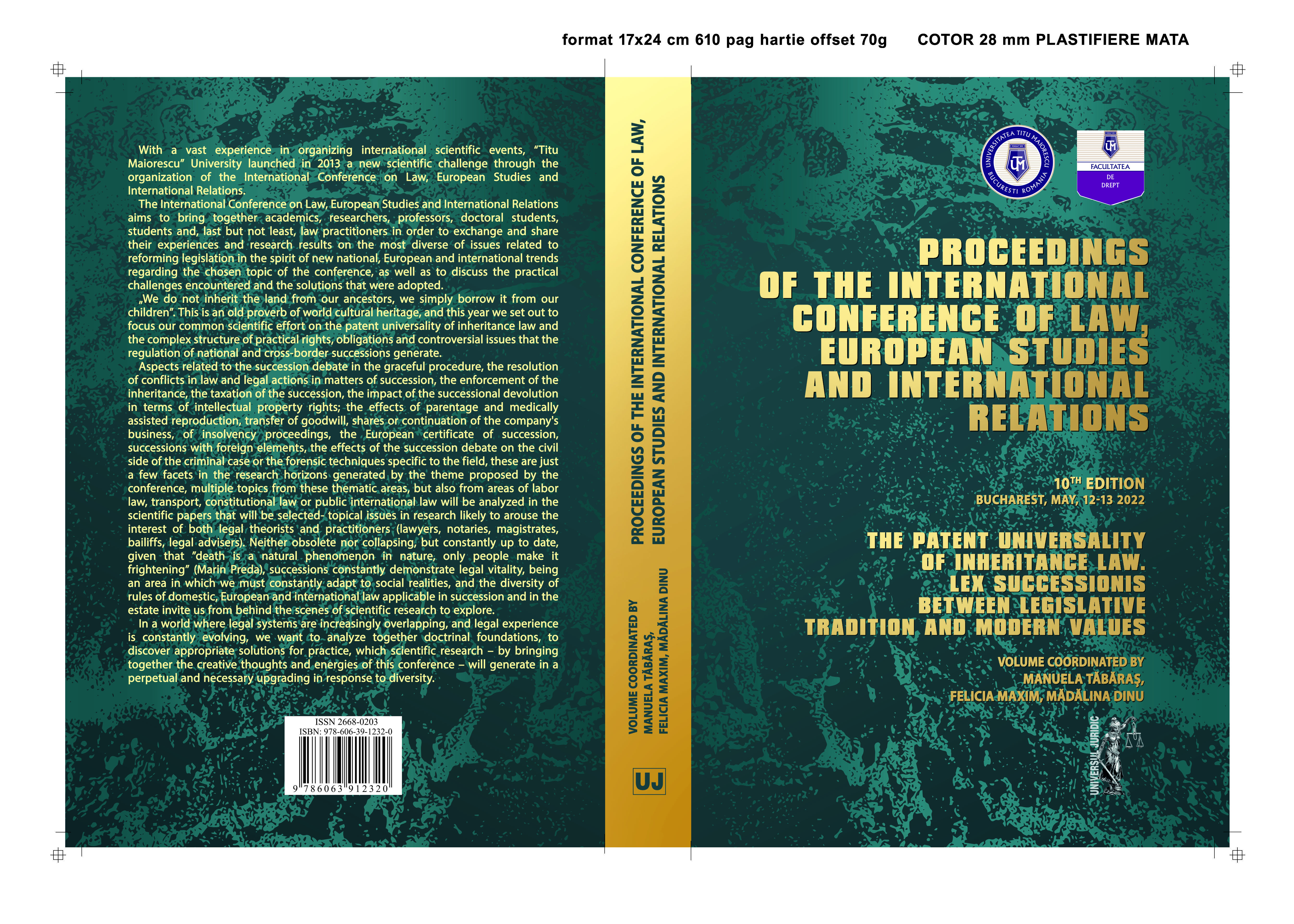ABOLITION OF THE DECEASED'S DOCUMENTS AND THE TRANSFER OF OBLIGATIONS TO THE HEIRS
ABOLITION OF THE DECEASED'S DOCUMENTS AND THE TRANSFER OF OBLIGATIONS TO THE HEIRS
Author(s): Adina Lorena CodeiaSubject(s): Law, Constitution, Jurisprudence, Civil Law
Published by: Universul Juridic
Keywords: inheritance; indivision; the reduction of liberalities; patrimony;
Summary/Abstract: The transmission of the patrimony to the deceased’s heirs at the time of death is a complex process, thoroughly regulated by the succession law. However, the institution of inheritance has been criticized for making it possible to acquire wealth without work and for being a major source of economic inequality. Such attacks have come not only from those who support total income equality and aspire to a social ideal, but also from doctrinaires who believe that large differences in the distribution of wealth are incompatible with modern conceptions of human dignity. In response to criticism, inheritance was defended on both economic and moral grounds, with the most debatable issues within a private property system being: who should be the ones to acquire the succession, whether the freedom of the will is or not allowed and within what limits. Since inheritance has developed as an incident of kinship in all societies, the sense of belonging, the expression of the individual's generosity and affection are so strong, especially between parents and children, that a person's sense of freedom would not be complete if he did not know that he can transfer his assets the exact way he wishes. The question arises, however, whether the inheritance will extend beyond the circle of persons to whom the deceased was related by kinship or whose welfare he was or should have been concerned with. Therefore, considering the historical perspective of the institution, but also its evolution within the legislation of the European states, we propose to analyze and clarify herein the main aspects and doctrinal controversies expressed, in terms of the abolition by the heirs of some acts of the deceased and the transfer of obligations to them, highlighting the impact and importance of the succession law in Romanian civil law and taking into account both the freedom of will of the author of the patrimonial provisions for the cause of death, as well as the rights and obligations of his heirs.
Journal: Conferința Internațională de Drept, Studii Europene și Relații Internaționale
- Issue Year: XII/2023
- Issue No: XII
- Page Range: 299-309
- Page Count: 11
- Language: English

